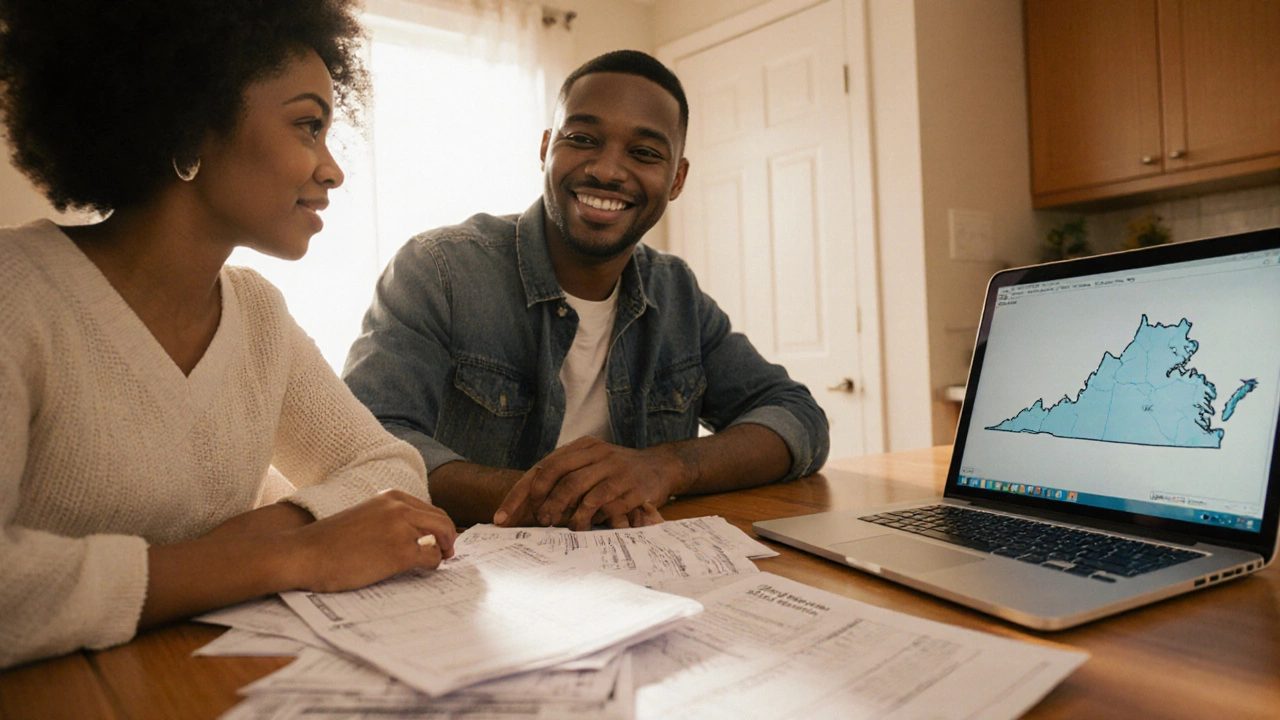Learn the exact steps, income limits, credit score thresholds, and documentation needed to qualify for Virginia's first‑time homebuyer programs.
Virginia First‑Time Homebuyer Guide 2025: Programs, Tips & Savings
If you’re ready to buy your first home in Virginia, you’re probably wondering where to start. The good news is that Virginia offers a range of assistance programs, and you don’t need a huge bank balance to get in the market. Below you’ll find the most useful steps to take, the money you can save, and the common pitfalls to avoid.
Know Your State Help
Virginia’s Department of Housing and Community Development runs several grant and loan options for first‑time buyers. The most popular is the Virginia Housing First‑Time Homebuyer Loan, which combines a low‑interest mortgage with down‑payment assistance that can cover up to 5% of the purchase price. Eligibility usually requires a credit score above 620, a stable income, and the property must be your primary residence.
Another option is the Virginia Homeownership Assistance Program (VHAP). This program offers a forgivable loan that you only repay if you sell the house within a certain period. It’s a great way to keep your monthly payment low while you build equity.
Cut the Costs Before You Close
Closing costs in Virginia typically range from 2% to 5% of the home price. You can negotiate with the seller to cover part of these fees, or shop around for a title company that offers lower rates. Don’t forget to ask about the “buyer rebate” – some agents will give you cash back after the transaction is complete, which can offset closing costs.
Realtor fees are another area where you can save. While the standard commission is around 5‑6% of the sale price, the fee is split between the buyer’s and seller’s agents. In 2025, many buyers are negotiating a lower buyer‑agent commission or opting for a limited‑service broker who charges a flat fee. Check the latest NAR settlement rules to see what’s allowed in your area.
Finally, keep an eye on property taxes and insurance. Virginia’s tax rates vary by county, so a home in a lower‑tax area can reduce your monthly payment significantly. Use online calculators to estimate insurance costs based on the home’s age and location.
Putting these steps together—leveraging state programs, negotiating fees, and choosing a cost‑effective agent—can shave thousands off the price of your first home. Remember, the biggest advantage is starting early: the sooner you get pre‑approved, the more options you’ll have and the stronger your offer will be.
Ready to start your search? Download the Virginia Housing portal, get pre‑approved with a lender who knows the local market, and begin touring homes that fit your budget. Your first home is within reach—just follow the steps, ask the right questions, and keep an eye on the savings.
Thinking about buying your first home in Virginia? This guide covers all the key details about first-time homebuyer programs in the state. Learn about specific loans, down payment help, and who qualifies. Get practical tips to boost your chances of approval. Avoid common mistakes and find out how to make your dream of homeownership a reality in Virginia.

